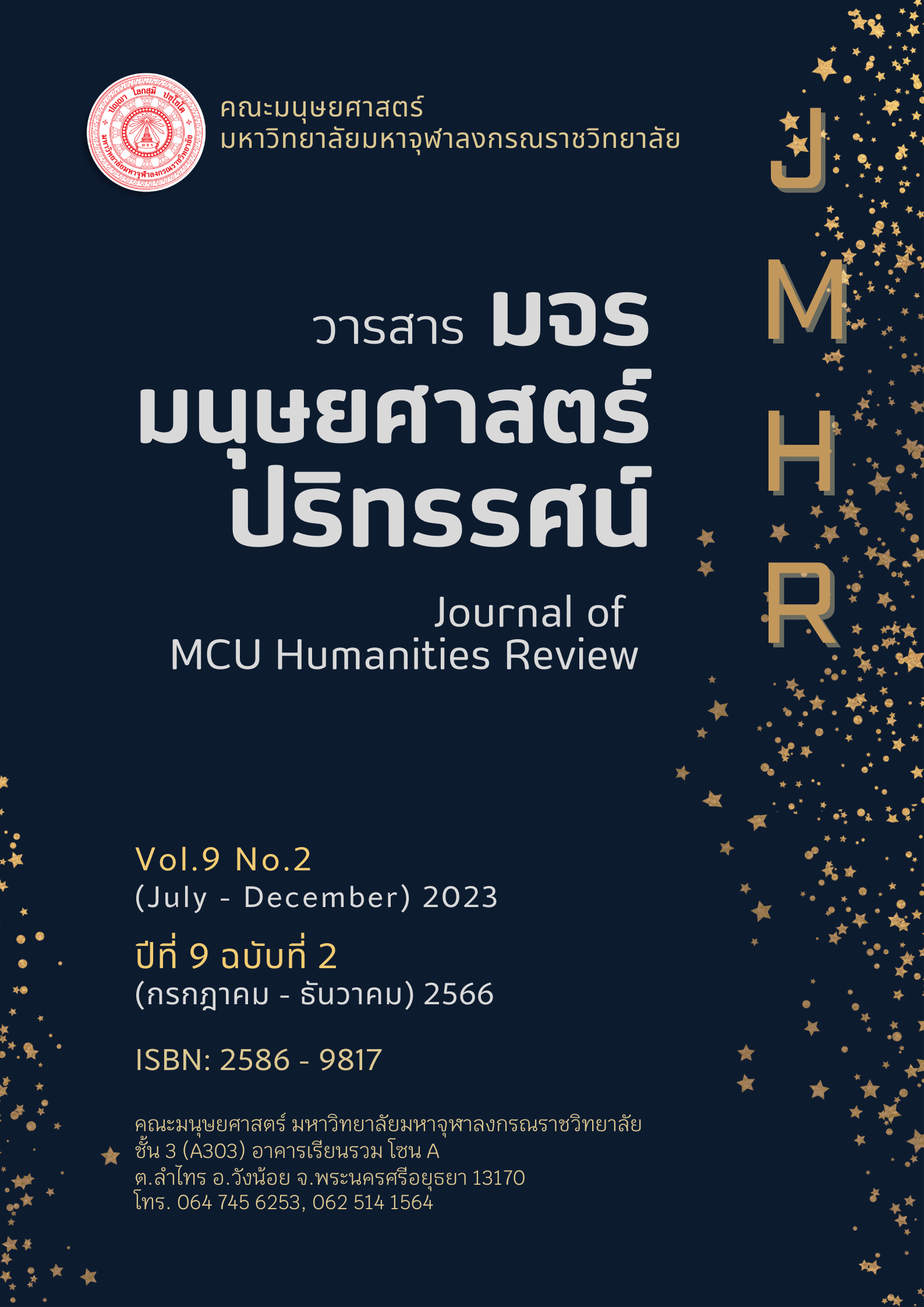Dilemmas in the Classroom: A Study on the Efficacy of Scenario-Based Learning in Critical Thinking Enhancement
คำสำคัญ:
Critical Thinking, Dilemma Scenarios, English, Foreign Language, Learningบทคัดย่อ
-
เอกสารอ้างอิง
Bloom, B. S., Engelhart, M. D., Furst, E. J., Hill, W. H., & Krathwohl, D. R. (1956). Taxonomy of educational objectives: The classification of educational goals. Handbook 1: Cognitive domain. New York: McKay.
Clark, R. C., Nguyen, F., & Sweller, J. (2006). Efficiency in learning: Evidence-based guidelines to manage cognitive load. John Wiley & Sons.
Crystal, D. (2012). English as a global language (2nd ed.). Cambridge University Press.
Cummins, J. (2014). The intersection of cognitive and sociocultural factors in second language acquisition. Journal of Second Language Pedagogy, 5(2), 12-29.
Darasawang, P., & Reinders, H. (2010). Encouraging autonomy with an online language support system. Innovation in Language Learning and Teaching, 4(1), 17-28.
Ertmer, P. A., & Russell, J. D. (1995). Using case studies to enhance instructional design education. Educational Technology, 35(4), 23-31.
Freire, P. (1970). Pedagogy of the oppressed, New York (Herder & Herder).
Hayes, D. (2017). English language teaching in Thailand today. Asia TEFL Journal, 9(4), 13-27.
Jonassen, D. H., & Hernandez-Serrano, J. (2002). Case-based reasoning and instructional design: Using stories to support problem-solving. Educational Technology Research and Development, 50(2), 65-77.
Khamkhien, A. (2010). Teaching English speaking and English speaking tests in the Thai context: A reflection from Thai perspective. English Language Teaching, 3(4), 184-190.
OECD. (2018). The future of education and skills: Education 2030. OECD Publishing.
Panjandee, A. (2013). The Development of Ability Critical Thinking Test for Mathayomsuksa I-III Students. Journal of Education Rajabhat Maha Sarakham University, 11(2), 249-262.
Paul, R., & Elder, L. (2014). Critical thinking: The nature of critical and creative thought. Rowman & Littlefield.
Thongprasert, N. L. (2017). Thai EFL learners’ perceptions of foreign language anxiety: A qualitative study. LEARN Journal: Language Education and Acquisition Research Network, 10(2), 157-168.
Trilling, B., & Fadel, C. (2009). 21st-century skills: Learning for life in our times. John Wiley & Sons.
Vygotsky, L. S., & Cole, M. (1978). Mind in society: Development of higher psychological processes. Harvard university press.
Wongsothorn, A., Hiranburana, K., & Chinnawongs, S. (2002). English language teaching strategies used by teachers in lower primary schools in Bangkok. PASAA: A Journal of Language Teaching and Learning in Thailand, 31, 63-74.
ดาวน์โหลด
เผยแพร่แล้ว
รูปแบบการอ้างอิง
ฉบับ
ประเภทบทความ
สัญญาอนุญาต
ลิขสิทธิ์ (c) 2023 วารสาร มจร มนุษยศาสตร์ปริทรรศน์

อนุญาตภายใต้เงื่อนไข Creative Commons Attribution-NonCommercial-NoDerivatives 4.0 International License.






